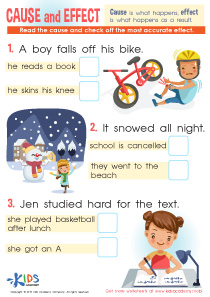Vocabulary development Normal Reading Non-Fiction Worksheets for Ages 7-9
5 filtered results
-
From - To
Enhance vocabulary development in children aged 7-9 with our engaging non-fiction reading worksheets! Designed for young learners, these resources provide stimulating content that fosters language skills through exploration and comprehension of real-world topics. Each worksheet features age-appropriate texts coupled with interactive activities that encourage critical thinking and retention. Students will expand their word bank while improving reading fluency and understanding. These worksheets make learning enjoyable and effective, empowering children to connect with non-fiction material and deepen their knowledge. Ideal for classroom use or at-home enrichment, our vocabulary development worksheets are perfect for nurturing confident readers. Start your journey to vocabulary mastery today!


The Dentist Worksheet
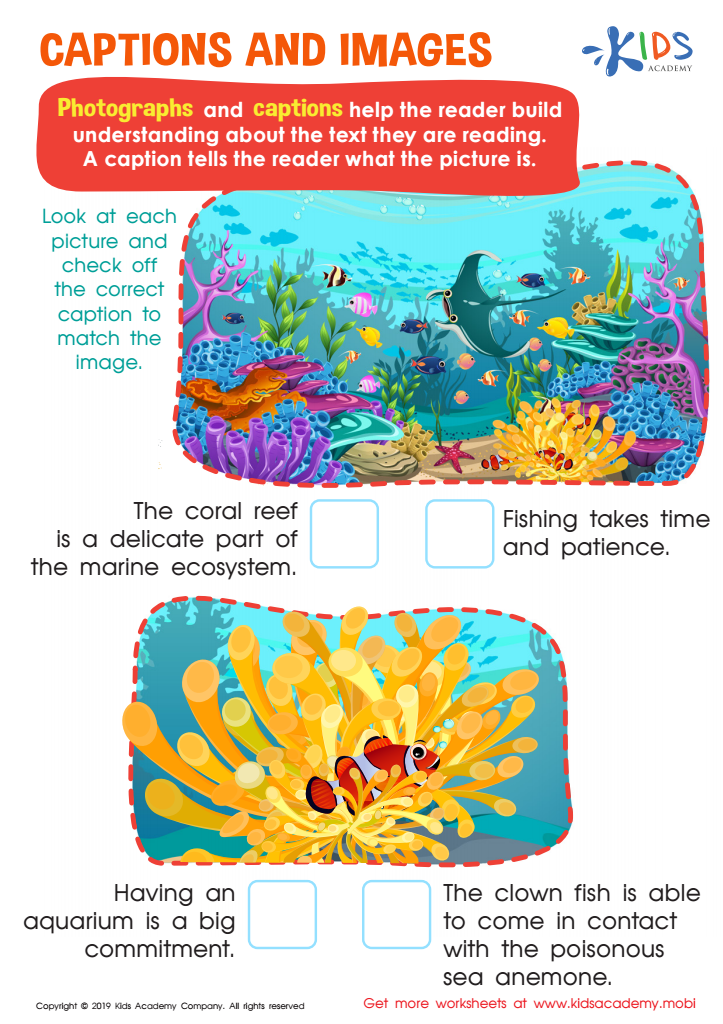

Captions and Images Worksheet
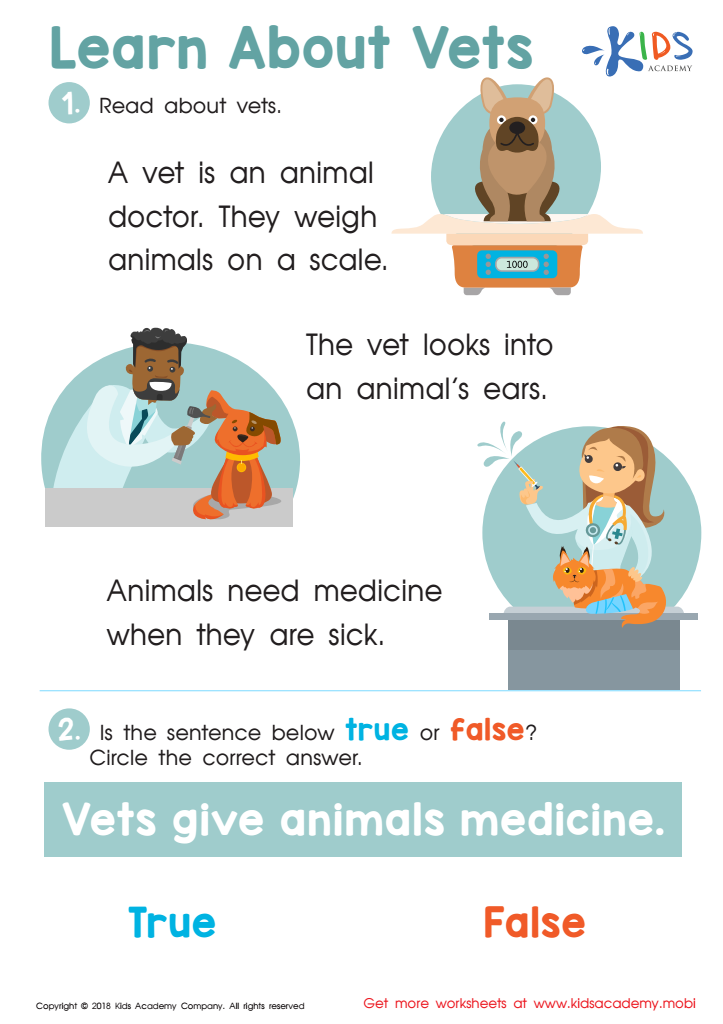

Learn About Vets Worksheet
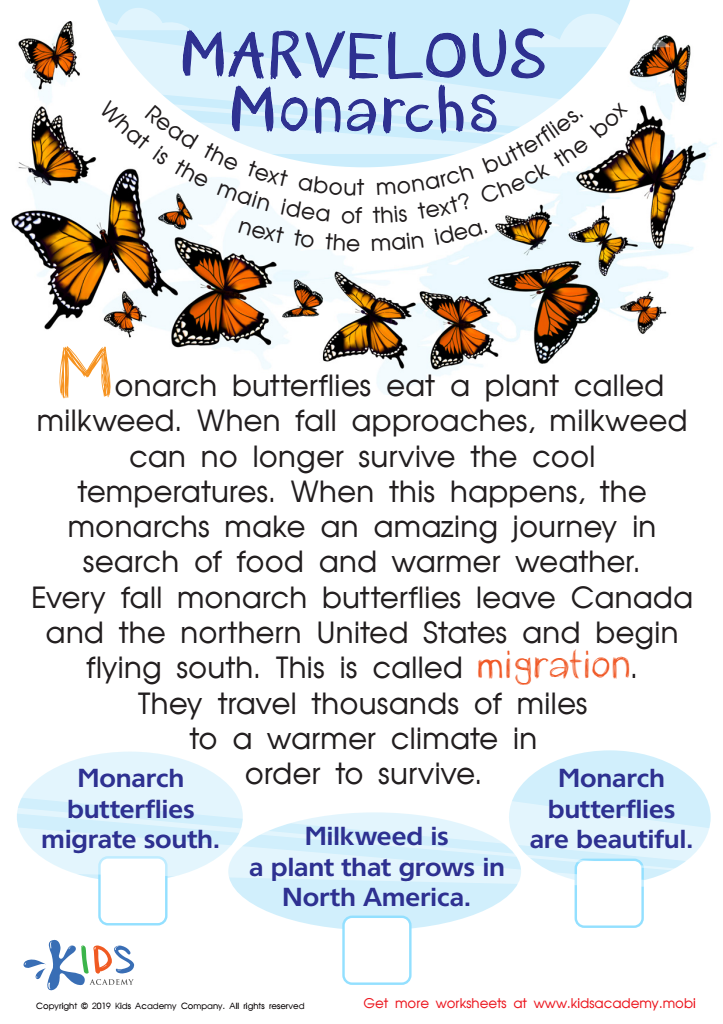

Marvelous Monarchs Worksheet
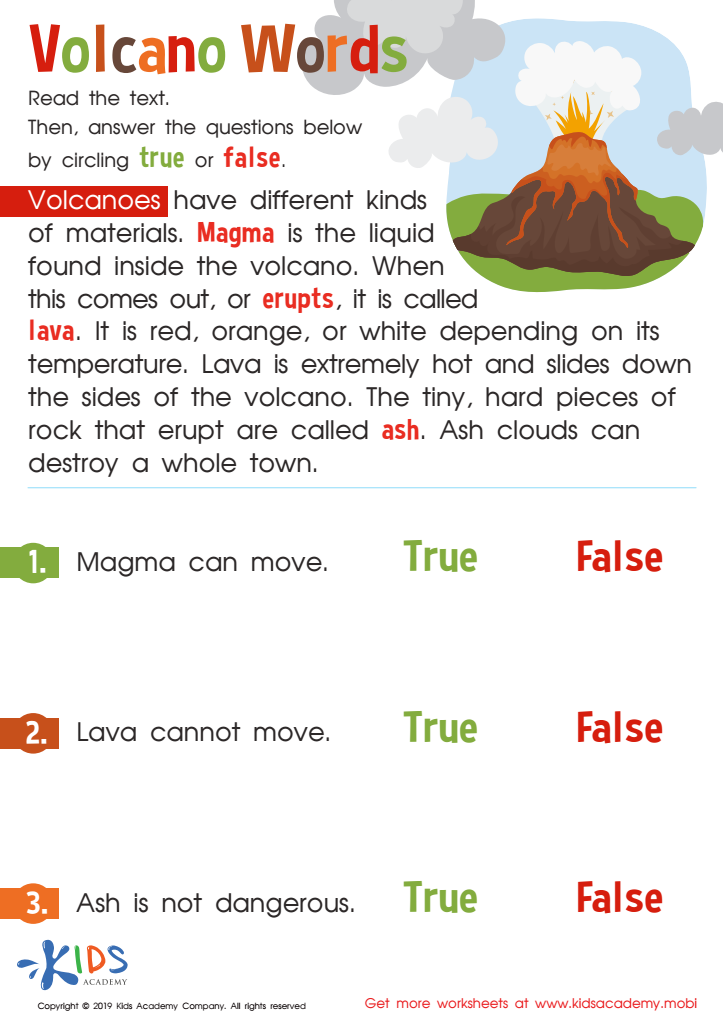

Volcano Words Worksheet
Vocabulary development is crucial for children aged 7-9, especially as they engage with non-fiction texts. This age group is transitioning from learning to read to reading to learn, making vocabulary acquisition vital for academic success. A rich vocabulary enhances comprehension, enabling children to absorb information from textbooks and educational materials effectively. It lays the foundation for critical thinking, as students with a broader vocabulary can express their ideas, ask deeper questions, and make connections between different concepts.
Furthermore, engaging with non-fiction during this stage exposes kids to a variety of subjects, fostering curiosity and a love for learning. Parents and teachers can enhance vocabulary through discussions, reading together, and using context clues in texts. Encouraging children to explore a wide range of topics will also introduce them to new words and concepts, making them more articulate and confident communicators.
Active vocabulary development also plays a role in social interactions, as children who can express themselves better are more likely to participate in discussions with peers. Ultimately, focusing on vocabulary in non-fiction reading not only boosts academic performance but also equips children with essential skills for lifelong learning and personal growth.
 Assign to My Students
Assign to My Students








